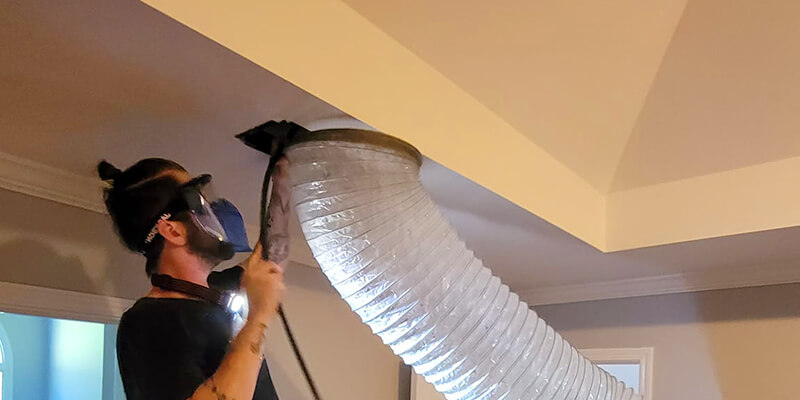The HVAC system is an essential component in both residential and commercial buildings. One of its key parts is the blower motor. To better understand its significance, we must first ask, ‘What is the purpose of the blower motor in an HVAC system?’ and how does it contribute to the overall system performance?
The blower motor plays a vital role in circulating air throughout the building. In this article, we will explore its functions, importance, and how it fits into the bigger picture of HVAC technology.

The Vital Role of the Blower Motor
How Does the Blower Motor Work?
The blower motor is the heart of the HVAC system. It drives the fan that blows air through the ducts and into your living or working space. It helps regulate the temperature by evenly distributing heated or cooled air. This ensures that every room has a consistent climate, enhancing comfort and energy efficiency.
Types of Blower Motors
There are different types of blower motors used in HVAC systems:
- Single-speed motors: These have one speed setting and either turn on or off.
- Variable speed motors: These can adjust their speed to meet the heating or cooling demands, offering better energy efficiency.
- Electronically commutated motors (ECMs): These offer advanced energy savings and are controlled electronically.
Importance of a Properly Functioning Blower Motor
Energy Efficiency
A well-maintained blower motor can significantly boost energy efficiency. Motors that can adjust their speed can better match the home’s heating and cooling needs, saving energy and reducing utility bills.
Indoor Air Quality
The blower motor also affects the indoor air quality. A clean and efficient motor helps to maintain clean air circulation, reducing allergens and pollutants. It is important to regularly check and maintain the blower motor to ensure a healthy living environment. Learn more about air duct cleaning here.
Common Blower Motor Issues
Humming Noises
If your blower motor is making unusual humming noises, it might signal a problem. The noise could be due to motor bearings or an electrical issue.
No Airflow
If there is no airflow, the first thing to check is the blower motor. This could be due to a tripped circuit breaker, a blown fuse, or a motor that needs replacement.
Maintenance Tips for Blower Motors
Regular Inspections
Conduct regular inspections to ensure that the blower motor and other HVAC components are in good working condition. Look out for dust accumulation and lubrication needs.
Professional Servicing
It is advisable to have a professional service your HVAC system annually. They can spot potential issues before they become significant problems. What if you don’t clean ducts? Commercial duct cleaning
Component Lubrication
Lubricating the moving parts of the blower motor can prolong its life and ensure it runs smoothly.
Upgrading Your Blower Motor
Benefits of High-Efficiency Motors
Upgrading to a high-efficiency blower motor can offer significant benefits. These motors adjust their speed to meet the demands of the HVAC system, providing better comfort and lower energy costs.
When to Consider an Upgrade
If your current motor is old or frequently breaking down, it might be time to consider an upgrade. Newer models offer improved technology and better performance, making them a worthwhile investment.
Impact on the Entire HVAC System
Cooling and Heating Efficiency
A properly functioning blower motor ensures that your HVAC system operates efficiently. It heats and cools more effectively, reducing wear and tear on other components.
System Longevity
Regular maintenance and proper functioning of the blower motor can extend the life of your entire HVAC system. This not only avoids unexpected breakdowns but also saves you money in the long run. Flushing HVAC system How to seal HVAC
Professional HVAC Services
Benefits of Professional Help
While some maintenance tasks can be done by homeowners, others require the expertise of a professional. They have the knowledge and tools to handle complex issues that may not be apparent to the untrained eye.
Choosing the Right Service Provider
Selecting a reputable and experienced HVAC service provider ensures quality work and extends the life of your system. Look for certified professionals with good reviews and comprehensive service offerings. Learn more about HVAC systems here.
Cost Considerations
Initial Costs vs. Long-term Savings
Investing in a high-quality blower motor might seem expensive initially, but it provides long-term savings. Enhanced energy efficiency and fewer repairs make it a cost-effective choice over time.
Budgeting for Maintenance
Regular maintenance of your blower motor and HVAC system should be considered in your budget. Preventative maintenance is more economical than dealing with major repairs or replacements.
Environmental Impact
Reducing Energy Consumption
A high-efficiency blower motor lowers your energy consumption, which is beneficial for the environmen t. Reduced energy usage translates to fewer greenhouse gas emissions, contributing to a healthier planet.
t. Reduced energy usage translates to fewer greenhouse gas emissions, contributing to a healthier planet.
Supporting Sustainability
By choosing eco-friendly options and maintaining your HVAC system properly, you contribute to global sustainability efforts. Responsible energy consumption helps preserve our resources for future generations.
FAQs
How often should I inspect my blower motor?
It’s recommended to inspect your blower motor annually as part of regular HVAC maintenance. This helps catch any potential issues early and ensures optimal performance.
Can I replace my blower motor myself?
While some DIY enthusiasts might feel up to the task, replacing a blower motor typically requires professional expertise. Incorrect installation can lead to further issues and void warranties.
What are the signs of a failing blower motor?
Signs of a failing blower motor include unusual noises, inconsistent airflow, and increased utility bills. If you notice any of these symptoms, it’s best to contact a professional for an inspection.